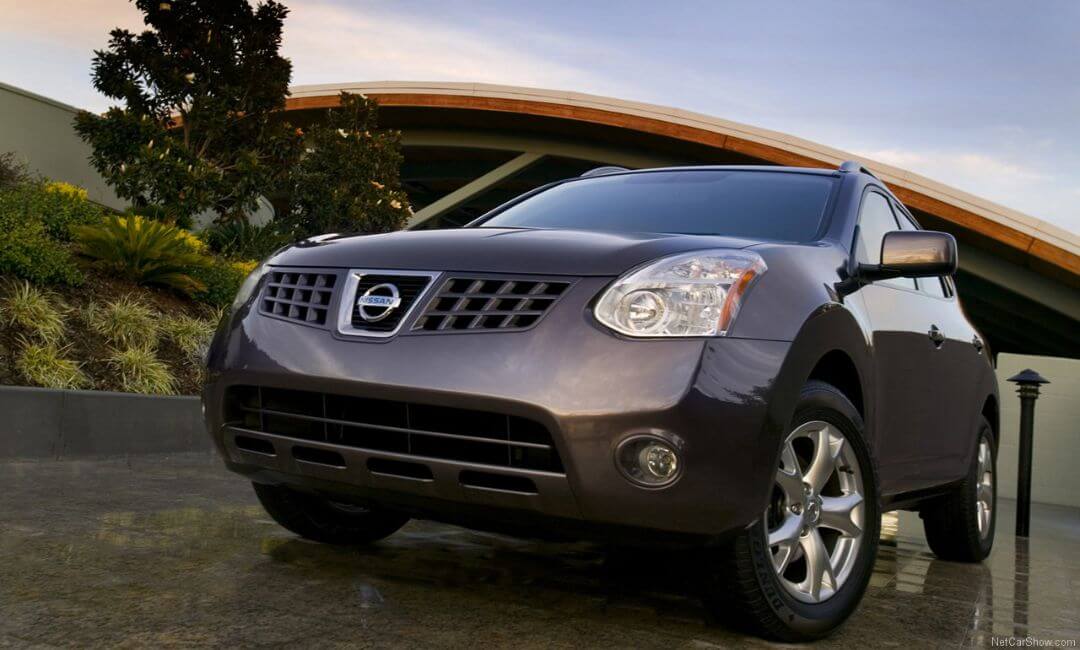If you’re in the market for a compact SUV that weaves everyday comfort with modern safety features, you’ve been eyeing the Nissan Rogue. The Rogue has had a successful run since its introduction in 2008 as a vehicle that focuses on practicality, value, and fuel economy. It is one of Nissan’s top-selling models in North America and a bastion of strength in the European market, competing with the Honda CR-V and Toyota RAV4.
But as much as the Rogue has going for it, not every model year is worth buying. Indeed, some iterations have suffered from quite serious reliability issues, particularly with the CVT, electrical components, and engine performance. For car shoppers who prefer to dodge unexpected repair bills or drive-you-crazy mechanical headaches, it’s essential to be aware of which Nissan Rogue years to avoid — and which ones offer better-tasting plums.
This article focuses on the Nissan Rogue years due to confirmed customer complaints, recall data, and expert reviews. It also considers which model years have proven to provide the best long-term reliability, the fewest maintenance headaches, and superior driving experiences. This guide will help you make a wise, informed choice whether you are buying used SUVs for the family, the daily commute, or go-everywhere adventure vehicles.
We’ve reviewed real-world information from reputable automotive experts, including J.D. Power, NHTSA, and participating owner community forums, to ensure accuracy and credibility. Don’t sign anything until you’ve read this exhaustive breakdown of the Rogue’s best and worst years—so you can invest in a vehicle you can count on, and not one that lets you down.
Must Check: Nissan X-Trail Years to Avoid: The Nightmare Years No Dealer Talks About
Nissan Rogue: Years to Avoid (and Why)

1. 2008–2010 Nissan Rogue (1st Generation) — CVT Failures & Electrical Hazards
Key Specifications:
- Engine: 2.5L 4-cylinder
- Horsepower: 170 hp
- Transmission: Continuously Variable Transmission (CVT)
- Drivetrain: FWD or AWD
- Fuel Economy: Up to 22 MPG city / 27 MPG highway
The Rogue debuted in 2008, but the first three model years had tremendous quality issues. The worst thing going wrong was that early CVT system, which frequently keeled over dead before 70,000 miles. Owners complained of stuttering acceleration, loss of power, and overheating, and the fix could cost up to $5,000.
Other areas of concern included defective HVAC systems, sensor failures, power steering going out, and problems with sunroofs. Water seeping into the floorboards additionally led to corrosion of its wiring harness, which represented a fire risk— a concern especially relevant to cars that suffer electrical issues or early transmission failures.
2. 2011–2013 Nissan Rogue (1st Generation, Late Phase) — Ongoing CVT Issues & Suspension Troubles
Key Specifications:
- Engine: 2.5L 4-cylinder
- Horsepower: 170 hp
- Transmission: Continuously Variable Transmission (CVT)
- Drivetrain: FWD or AWD
- Fuel Economy: Up to 23 MPG city / 28 MPG highway
While Nissan did perform some minor updates during this time, the 2011–2013 Rogue models still had severe reliability issues. The CVT was the Achilles’ heel once again, where some owners complained of whiny transmission noise, habitual slipping, and on occasion, total transmission failure. Even with service bulletins, these problems continued in all three model years.
These cars were also known to wear out their suspension, rattle their front struts, and wear out bushings that would make for a poor ride. If you’re comparing options, some affordable rear-wheel drive cars might even be more reliable in the long run than these front-wheel drive Rogues.
Its electronics had issues too—fuel gauge problems, sensors going bad, and wonky A/C systems all plagued the 190 as well. Among the most significant recalls, according to CR’s analysis, for its 2011 model year, the car’s electric power steering (EPS) system could fail, causing a sudden loss of steering assist and increasing the chance of a crash.
3. 2014–2015 Nissan Rogue (2nd Generation, Early Phase) — CVT Complaints Continue & Recalls Emerge
Key Specifications:
- Engine: 2.5L 4-cylinder
- Horsepower: 170 hp
- Transmission: Continuously Variable Transmission (CVT)
- Drivetrain: FWD or AWD
- Fuel Economy: Up to 26 MPG city / 33 MPG highway
The 2014–2015 versions of Nissan’s Rogue brought with them a stylish, all-new redesign, additional cabin space, and better fuel economy (33 MPG highway, for example). Still, reliability issues persisted for these model years, which tag these Rogues as problematic. The 2.5L 4-cylinder engine combined with the CVT transmission continued to have transmission performance issues such as slipping, hesitation, and overheating, in particular for the 2014 Altima with a problematic valve body.
Drivers also experienced regular problems with the infotainment system, backup cameras, and Bluetooth. There were also widespread reports of water leaks from sunroofs and inadequate heating and air conditioning systems. Both model years were plagued by a major recall over a key fob ignition problem, which could lead the engine to stall while driving. Undocumented repairs make early second-gen Rogues a bit of a questionable purchase in the used SUV space.
4. 2016–2017 Nissan Rogue — Transmission & Safety Recall Concerns

Key Specifications:
- Engine: 2.5L 4-cylinder
- Horsepower: 170 hp
- Transmission: CVT (Continuously Variable Transmission)
- Drivetrain: FWD or AWD
- Fuel Economy: Up to 26 MPG city / 33 MPG highway
Updates were modest for the 2016–2017 Rogue; CVT issues persisted to be an issue. Transmission shuddering, hesitation, and early failure were reported by owners, sometimes before 90,000 miles. Annoyances included noisy struts and bushings, and suspension problems.
Some 2016 versions were the subject of a faulty side curtain airbag recall, and brake warning lights, engine stalling, and cracked sunroof glass plagued the 2017 model. HVAC failures and rare electrical problems also hampered reliability. These years are to be avoided unless full maintenance history and recall repairs have been performed, with minimal ride improvement.
5. 2018 Nissan Rogue — Faulty Safety Tech & Braking Issues
Key Specifications
- Engine: 2.5L 4-cylinder
- Horsepower: 170 hp
- Transmission: CVT
- Drivetrain: FWD or AWD
- Fuel Economy: Up to 26 MPG city / 33 MPG highway
But while the 2018 Rogue did a better job offering better styling and features, it added all-new safety headaches. The most prevalent problem was the Automatic Emergency Braking (AEB) that randomly applied without a trigger for sudden and dangerous stops. Other users have shared issues including spongy or non-responsive brakes, A/C system failures, and infotainment displays that crash or go white-out.
Many complaints were regarding the forward collision warning system, which didn’t work correctly or issued false warnings. Although it had good fuel economy and interior comfort, reliability issues — specifically with its braking — left the 2018 Rogue with dismal scores in long-term ownership surveys. Buyers should hold off on this model year, unless they can verify recall work and software updates have been done.
6. 2021–2024 Nissan Rogue — Engine Recalls & Steering Concerns
Key Specifications:
Engine Options:
- 2.5L 4-cylinder (2021)
- 1.5L VC-Turbo 3-cylinder (2022–2024)
- Horsepower: 181 hp (2.5L), 201 hp (1.5L VC-Turbo)
- Transmission: CVT
- Drivetrain: FWD or AWD
- Fuel Economy: Up to 30 MPG city / 37 MPG highway (1.5L)
Third-generation Rogue (2021–2024) The third-generation Rogue that arrived with sleeker styling and advanced tech has some mechanical issues that should raise red flags for used SUV shoppers. Notably, a large recall was launched for more than 350,000 models equipped with the 1.5L VC-Turbo engine, caused by a defective bearing that may result in the engine failing altogether.
A federal investigation is also open for a potential steering bar defect on 77,000 of the 2021 models that may result in a loss of steering control. There have also been some early reports of battery failures, sensor bugs, and A/C problems from some owners. Although these children of the 2022–2024 models are more efficient and featureful, shoppers must make sure any recall repairs are addressed before purchase.
Better Bets: Safer Rogue Model Years

1. 2019–2020 Nissan Rogue — Proven and Reliable
If you’re looking for a more reliable Nissan Rogue, the 2019–2020 models are the most reliable. The 2020 Rogue performed well with J.D. Power, receiving an 83/100 reliability score, and it got just 15 complaints on CarComplaints, much lower than the wide 100+ range of complaints for prior years.
These models are equipped with the proven 2.5L naturally aspirated motor, which is known to be more durable than the updated 1.5L turbo. Other than a relatively minor key fob recall, there have been no major mechanical red flags with these model years, making it a good selection for anyone seeking a used SUV.
2. 2022–Present Nissan Rogue — Updated Tech, Some Risks
The 2022 and newer Rogues have a much more refined feel, with a redesigned interior, enhanced safety tech, and excellent fuel efficiency, especially with the 1.5L VC-Turbo engine (you can get up to 37 MPG of highway driving). But buyers must beware. One major recall involves more than 350,000 examples of engine bearing failures that could lead to an engine’s complete seizing. And the 2021 Rogue is being federally investigated for possible steering bar issues. Before purchasing, always verify that the recall work has been done.
3. Safer Alternatives to the Rogue
If your confidence is low, there are a few alternatives to buying a Rogue that will provide superior peace of mind. There are established, well-known horsey names in this category, such as the Toyota RAV4 and Honda CR-V, and both have stayed the course in building their reputations for longevity and dependability. Another solid choice is the 2022+ Mitsubishi Outlander, which uses the Rogue’s platform but keeps the older, more dependable 2.5L engine. Owners of 2019 Rogue SV models are ringing in as well, citing low maintenance costs and decent long-term performance, comments on Reddit say.
Conclusion: Which Nissan Rogue Should You Trust?
The Nissan Rogue delivers on practicality, comfort, and fuel efficiency, albeit without much thrill or local flair—but those who are just looking for safe, pleasant, reliable transportation are likely to be happy. Early models, especially between 2008 and 2018, had a high number of CVT transmission failures, electrical problems, and safety issues. The 2014–2015 and 2018 models, especially, are models to steer clear of, thanks to a combination of mechanical and software-based problems. Fortunately, there are better options. The 2019–2020 Rogue should have strong reliability, fewer complaints, and a more established powertrain.
The newer 2022–2024 Rogues bring improved features and efficiency, but there are potential risks for engine recalls that buyers will want to make sure have been taken care of. For those who are still uncertain, options such as the Toyota RAV4, Honda CR-V, and Mitsubishi Outlander tend to offer more stable long-term value. Regardless of whether you’re buying used or nearly new, the importance of checking recall status and servicing history can’t be overstated. Choose wisely, and you can benefit from a reliable compact SUV that doesn’t scare the pants off you.
Sources:
- Verified owner complaints and reliability data from CarComplaints.com
- Long-term reliability insights from Consumer Reports and Edmunds
- Real-world feedback and maintenance issues discussed on Nissan forums like NicoClub and RogueForums
- Official Nissan service bulletins and recall info via NHTSA.gov




